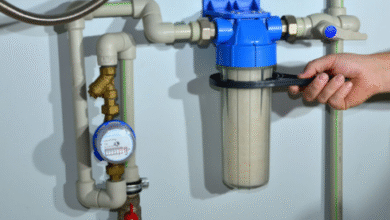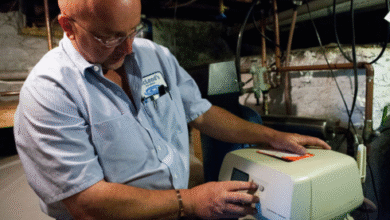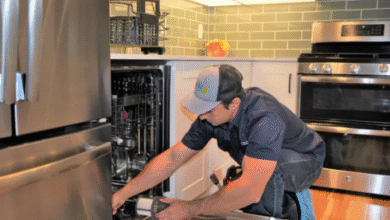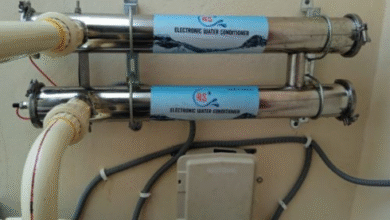Softening the Water, Easing the Home: A Real Look at Softeners, Costs, and Choices
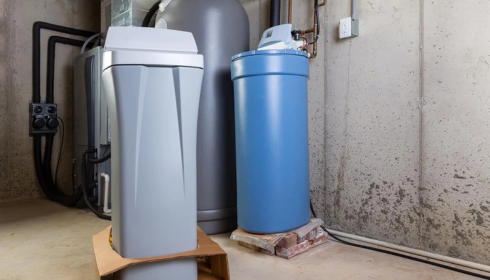
There’s something almost sneaky about hard water. You don’t notice it right away, but it quietly makes its mark—soap that doesn’t lather, faucets spotted with white mineral stains, clothes that feel a little stiffer after washing, and let’s not forget the way it can wear down appliances faster than you’d like. If you’ve ever stood at your kitchen sink wondering why your brand-new dishwasher suddenly looks like it’s been through a decade of work, chances are you’ve already met the invisible hand of hard water.
That’s usually when people start thinking about water softeners. But the conversation isn’t just about plugging in a system and walking away—it’s about cost, options, and choosing what’s right for your household. And honestly, that decision can feel a little overwhelming. So let’s walk through it together in a way that feels more like a chat over coffee than a stiff buying guide.
Why Water Softeners Matter More Than You Think
Hard water is mostly about calcium and magnesium, minerals that hitch a ride in your supply. On paper, they’re harmless, but in practice, they build scale in pipes, reduce the efficiency of heaters, and make everyday cleaning a chore. Think about the kettle you use for tea—it’s coated with chalky residue. Now imagine that on the inside of your plumbing.
A water softener steps in as the quiet hero. It exchanges those minerals for sodium or potassium, giving you water that’s kinder to skin, hair, appliances, and even your energy bill. In many homes, especially ones pulling from private wells, the difference is night and day.
Breaking Down the Real Costs
Money—always the tricky part. People often ask: what’s the cost of water softener systems, really? The truth is, it’s not a flat figure. Entry-level units can start around a few hundred dollars, while advanced whole-house setups may climb into the thousands. And that’s before you factor in installation, maintenance, or the occasional repair.
It helps to think of it less like a simple purchase and more like a household investment. Sure, the upfront bill might sting, but then you remember the longer lifespan of your dishwasher, the improved efficiency of your water heater, and the savings on soaps and detergents. Over time, many homeowners quietly realize they’re saving far more than they spent.
Well Water vs. City Supply: Why It Changes the Game
Not all water is created equal. If your home relies on municipal water, there’s often some level of treatment already in place. But wells? That’s a different story altogether. Well water can come with a cocktail of minerals, iron, and sometimes even sulfur.
That’s why people in rural or semi-rural areas often go hunting for the best water softener for well water. It’s not about luxury; it’s about necessity. These systems are built to handle heavier loads of minerals and can sometimes be paired with filters for iron or sediment. The choice here isn’t just about convenience—it’s about protecting plumbing, improving taste, and making water safe for everyday use.
Installation: DIY or Call the Pros?
Once you’ve decided on a system, the next hurdle is installation. And here’s where many people pause. Can you do it yourself? Technically, yes—if you’re handy, have the right tools, and don’t mind crawling around pipes for a weekend. But for most folks, calling in a professional is the way to go.
Searching for water softener installation near me usually pulls up a mix of plumbing companies and water treatment specialists. Costs for professional installation vary depending on where you live and how complex your plumbing setup is. But peace of mind is often worth it. A pro ensures the system is hooked up correctly, tested, and won’t leave you with leaks or pressure problems down the road.
Maintenance Isn’t Scary—Promise
One of the things people worry about is ongoing upkeep. It’s true, water softeners aren’t “set and forget.” You’ll need to refill the salt or potassium pellets, check for clogs, and occasionally service the unit. But honestly, most homeowners find the routine fairly easy once they get into the rhythm. A quick monthly check usually does the trick.
And the rewards? Softer laundry, shinier faucets, and showers that feel like you’re rinsing in silk. That’s the kind of maintenance most people are more than willing to keep up with.
Little Lifestyle Shifts That Make a Big Difference
It’s not just about the unit itself—it’s about how it changes daily life. Softened water means your favorite shampoo actually lathers the way the commercials promised. It means your glassware doesn’t need a second rinse to sparkle. Even cooking gets a subtle lift; boiled vegetables taste a bit fresher, coffee a touch cleaner.
And here’s a funny little detail most people don’t expect: your water heater doesn’t groan as much. Without mineral buildup, it heats faster and more efficiently. It’s like giving your appliances a second wind.
Common Missteps People Make
Before you rush into buying, here are a few pitfalls to avoid:
- Going too small. Undersizing a system leads to frequent regenerations and frustration.
- Ignoring water tests. Don’t just guess—get your water professionally tested. That way you know exactly what you’re dealing with.
- Overlooking the long game. The cheapest option upfront isn’t always the smartest when you factor in maintenance and durability.
So, Is It Worth It?
The answer depends on how much you value convenience, comfort, and long-term savings. For some households, especially where water isn’t particularly hard, a softener feels like a luxury. For others—well owners, families with sensitive skin, or homes packed with hardworking appliances—it’s almost non-negotiable.
I often compare it to upgrading your mattress. You can technically live without it, but once you’ve experienced the difference, you wonder how you ever managed before.
The Final Pour
Hard water isn’t the end of the world, but it does quietly chip away at comfort and costs. A water softener flips that equation, giving you water that’s gentler, more efficient, and easier on your home. The journey involves weighing price tags, considering well versus city supply, and deciding whether to install yourself or call in reinforcements.
At the end of the day, it’s not about perfection—it’s about making your daily routines smoother and your home a little easier to care for. And that, if you ask me, is worth more than just saving a few bucks on detergent.
